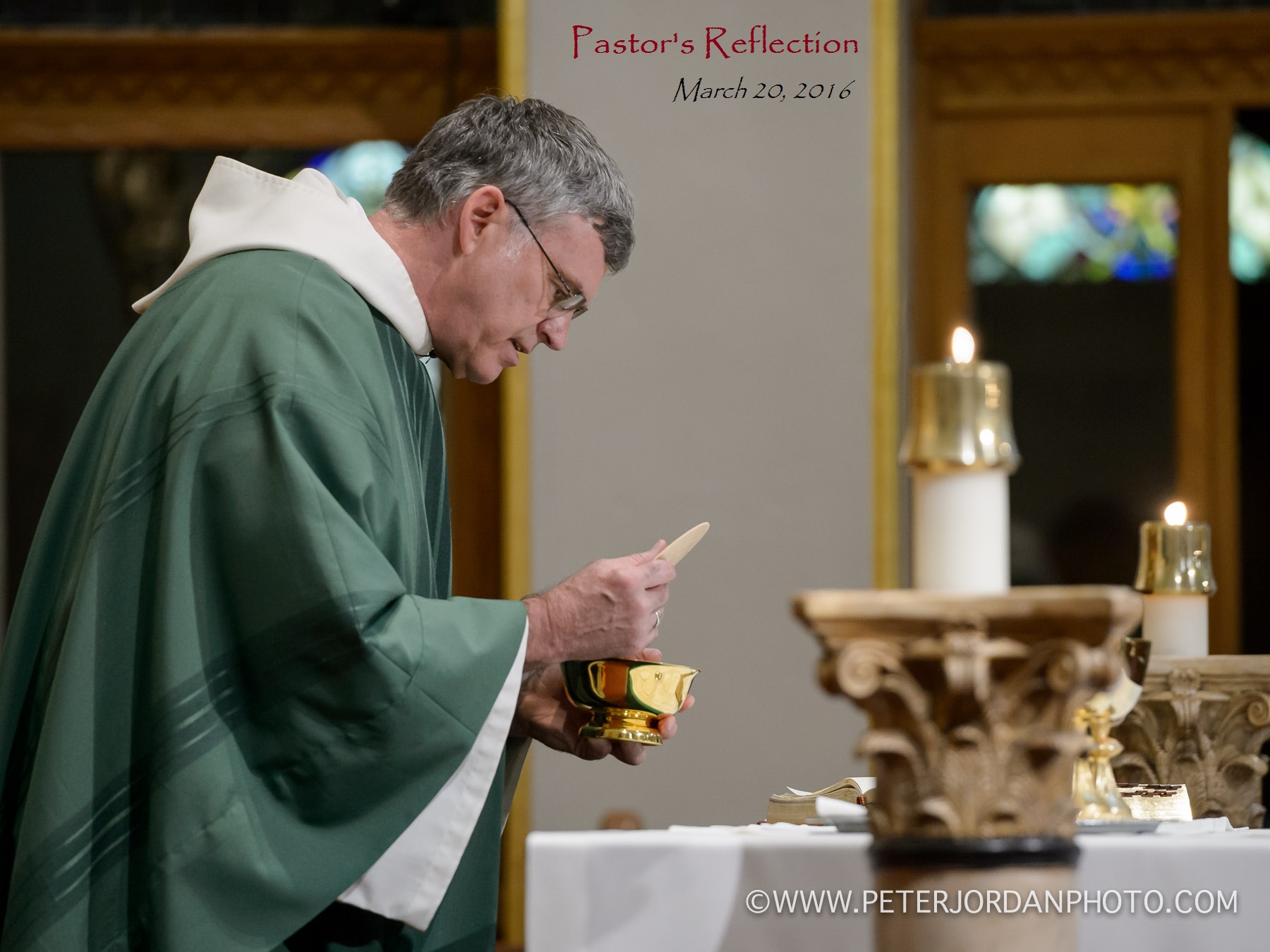St. Mary's Basilica
Phoenix, Arizona
Pastor’s Reflection

A quote sometimes attributed to Dorothy Day answers the question of just what Pope Pius XIII could have done to stand up to Hitler when the Jews were being rounded up and shipped to concentration camps: “He could have ridden into Berlin on a donkey.”
This quotation, true or not, captures the drama of what Jesus did when he entered Jerusalem to celebrate Passover. The city was ruled by Herod, puppet king under the Roman occupation, with the complicity of the temple establishment. Jesus’ symbolic ride fulfilled the prophecy of Zechariah (9:9) and mocked the triumphal entrance of all conquering generals on white horses. His action was provocative in the extreme, and its symbolism would not have been missed by the authorities. Jesus had no power and far less prestige than any pope in modern times, and such a stunt was the first act in a drama that ended with his crucifixion.
Our Palm Sunday liturgy is only theater it has no effect on our Christian commitment to follow Jesus in our own world, so marked by violent threats to anyone foolish enough to speak truth to power. We have enough examples of prophets killed for challenging the status quo: Gandhi in India; Dietrich Bonhoeffer and Franz Jagerstatter in Nazi Germany; Stephen Biko in South Africa; Martin Luther King Jr. in the United States; Benighno Aquino of the Philippines; Oscar Romero and the Jesuit martyrs of El Salvador. What social justice issues await new leaders in our own time?
This year we read Luke’s Passion, the longest account of the final hours of Jesus’ life, from his anointing in Bethany to his entombment. Our faith communities listen to this annual reading of the Passion to set the stage for Holy Week. Lent has brought us through 40 days to this threshold of the core mysteries of our faith, where the full cost of discipleship is revealed. This is the way of the cross.
For most of us, our share in the suffering of Christ will be neither public nor dramatic, but accomplished in our daily struggle to be true to our principles and faithful to our promises. For those who live to old age, there will be no lack of sacrifice and pain to join with the suffering of so many in our world, the vast cloud of witnesses who give themselves to their families and communities by fulfilling their responsibilities and bearing the common burdens that hold life together for everyone.
Some of the most difficult kinds of suffering are barely visible, but contribute greatly to the network of love that defines us — the patience to accompany the weak without judgment; the courage to support those most excluded by our society: the mentally ill, people in crisis, those set apart, the undocumented, refugees, the imprisoned. Being with Christ is not just imitating his love, but loving him when he is hidden in those who seem unlovable, distant and different, the least of our brothers and sisters.
By participating in the Palm Sunday procession and listening actively to the reading of the Passion, we are invited once again to review our own place within the real liturgy of the world – the “work of the people” that makes us the church in the modern world, witness to Christ, advocates for all those in needed. The body of Christ that dies on the cross is all of us. The body of Christ that is raised from the dead to new life is all of us. Our solidarity in suffering becomes our shared resurrection. Welcome to Holy Week.
A Gentle Week,
Fr. Michal Weldon, OFM
